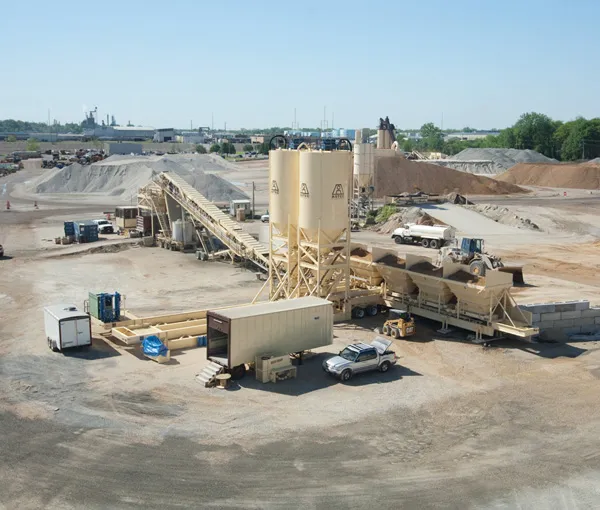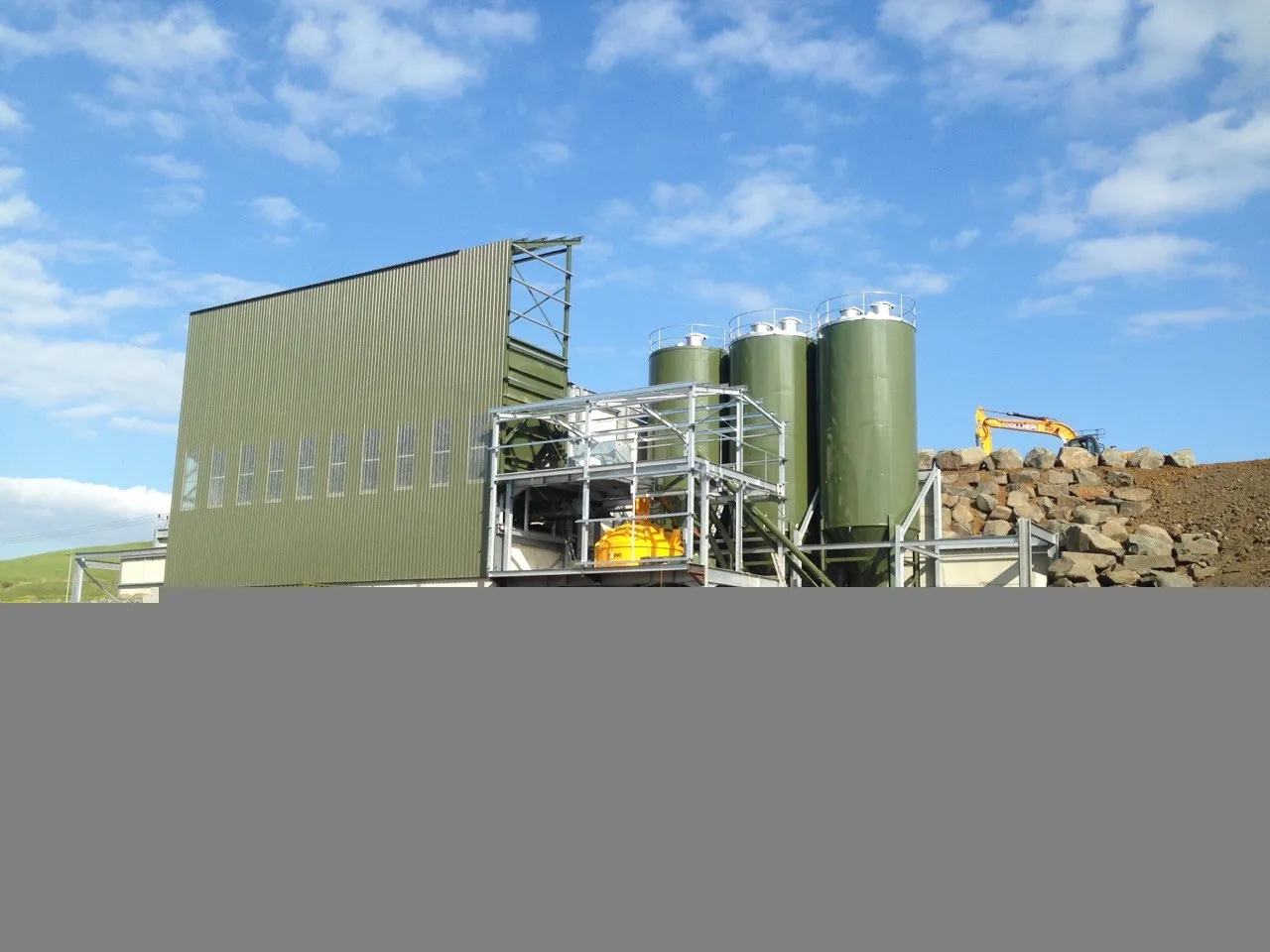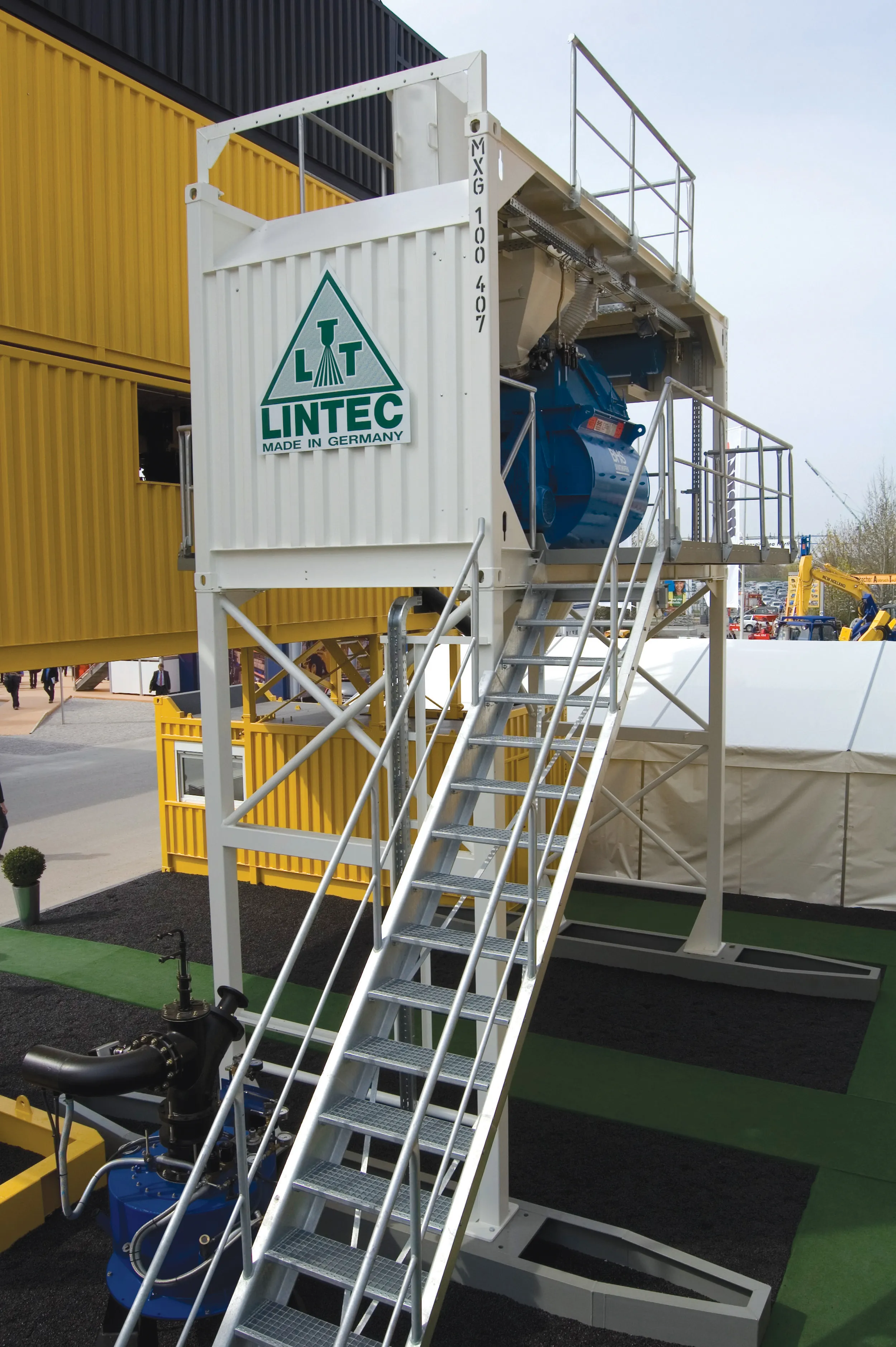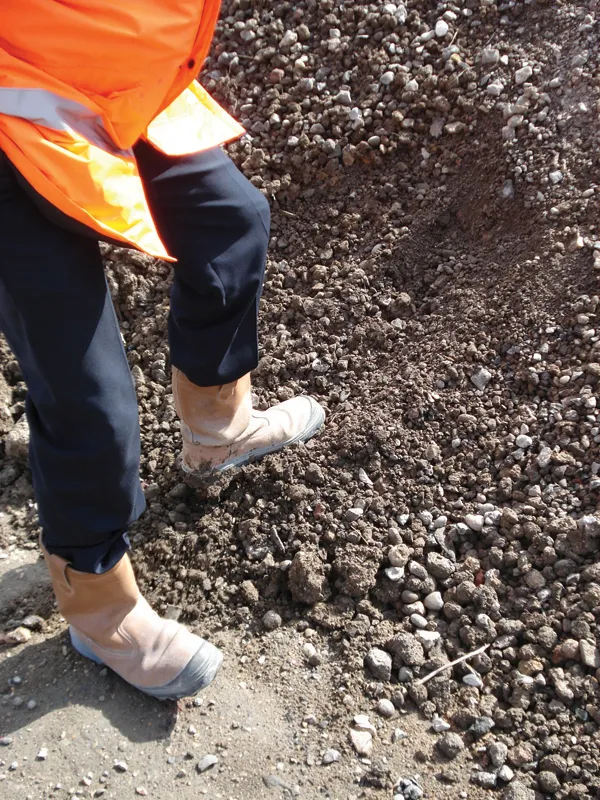An Astec Universal concrete plant is said to be proving a real time and money saver for APAC Tennessee, thanks to its fast set-up and reduced cement demand. In March 2011, Astec, of Chattanooga, Tennessee, USA, shipped a new Universal concrete plant to the APAC Tennessee site on President's Island in Memphis, which is central between two APAC projects: a Memphis Airport runway project and an upcoming Tennessee Department of Transportation (TDOT) ramp reconstruction job.
February 29, 2012
Read time: 3 mins

An 1250 Astec Universal concrete plant is said to be proving a real time and money saver for 3452 APAC Tennessee, thanks to its fast set-up and reduced cement demand.
In March 2011, Astec, of Chattanooga, Tennessee, USA, shipped a new Universal concrete plant to the APAC Tennessee site on President's Island in Memphis, which is central between two APAC projects: a Memphis Airport runway project and an upcoming Tennessee Department of Transportation (TDOT) ramp reconstruction job.
After arrival at APAC Memphis, site preparation began and within hours the Astec concrete plant, without the use of cranes, was erected and ready to calibrate.
After calibration for Phase One of the runway project, and test samples, the first 206 truckloads of cement treated base (CTB) were produced and placed on the runway grade, all within density requirements, and with strength greater than the contract specs: "accurate and 'in-spec' from the first load." Because of the precision water control, the CTB mix reached strengths higher than required with the designed cement content. APAC began systematic adjustments of the cement and found that they exceeded the contract strength spec comfortably after reducing cement content by over 20%.
The company attributes that success to the advantage of averaging the gradation variations by using multiple bins to proportion the same single coarse aggregate.
The feature of 'Continuous Blending' allows proportioning one material in three bins.
So instead of the mass batching of a normal plant, dealing with segregation with each load, the one material is proportioned one-third, onethird, one-third in the three bins.
"This reduces the segregation by at least 33%, and reduces cement demand significantly while still achieving great density on the grade," says Astec.
"Already, labour hours devoted to mixer clean-up are reduced. The auto-washdown feature eliminates the use of a chipping hammer. Instead, during a break in trucks, a quick washdown keeps the mixer clean: at the end of the day, a four-hour job is now less than 30 minutes."
Then record-setting high waters from the rising Mississippi River endangered the plant. When flooding began on 30 April, 2011, the site was within 500 yards (457.2m) of the rising waterline.
"Thanks to the modular design, the plant was first on the rescue list, and was mobilised and moved to a secure place 'on the high ground' in a matter of hours. No cranes, no site work, just down and out.
"This saved thousands of the dollars that would be needed to build berms around the shop, offices, and the stationary Astec HMA plant, all within the inevitable flooding area."
Now that the river has receded, the work to remove the berms is completed and the highmobility Astec concrete plant is back on site, completing Phase One of the runway work.
In March 2011, Astec, of Chattanooga, Tennessee, USA, shipped a new Universal concrete plant to the APAC Tennessee site on President's Island in Memphis, which is central between two APAC projects: a Memphis Airport runway project and an upcoming Tennessee Department of Transportation (TDOT) ramp reconstruction job.
After arrival at APAC Memphis, site preparation began and within hours the Astec concrete plant, without the use of cranes, was erected and ready to calibrate.
After calibration for Phase One of the runway project, and test samples, the first 206 truckloads of cement treated base (CTB) were produced and placed on the runway grade, all within density requirements, and with strength greater than the contract specs: "accurate and 'in-spec' from the first load." Because of the precision water control, the CTB mix reached strengths higher than required with the designed cement content. APAC began systematic adjustments of the cement and found that they exceeded the contract strength spec comfortably after reducing cement content by over 20%.
The company attributes that success to the advantage of averaging the gradation variations by using multiple bins to proportion the same single coarse aggregate.
The feature of 'Continuous Blending' allows proportioning one material in three bins.
So instead of the mass batching of a normal plant, dealing with segregation with each load, the one material is proportioned one-third, onethird, one-third in the three bins.
"This reduces the segregation by at least 33%, and reduces cement demand significantly while still achieving great density on the grade," says Astec.
"Already, labour hours devoted to mixer clean-up are reduced. The auto-washdown feature eliminates the use of a chipping hammer. Instead, during a break in trucks, a quick washdown keeps the mixer clean: at the end of the day, a four-hour job is now less than 30 minutes."
Then record-setting high waters from the rising Mississippi River endangered the plant. When flooding began on 30 April, 2011, the site was within 500 yards (457.2m) of the rising waterline.
"Thanks to the modular design, the plant was first on the rescue list, and was mobilised and moved to a secure place 'on the high ground' in a matter of hours. No cranes, no site work, just down and out.
"This saved thousands of the dollars that would be needed to build berms around the shop, offices, and the stationary Astec HMA plant, all within the inevitable flooding area."
Now that the river has receded, the work to remove the berms is completed and the highmobility Astec concrete plant is back on site, completing Phase One of the runway work.









